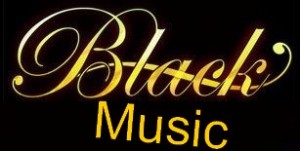 Now the thrill is gone. Another icon has left us this week. Another legendary king has left us– B.B. King passed away at 89 after having a series of strokes. Forbes is reporting that the streams featuring King have gone up by 10,000 percent. What will happen now to “Lucille” because nobody player her like BB. In fact, nobody played any guitar like BB King. The King of the blues has joined the King of Pop Michael Jackson, Motown’s Dad Marvin Gaye, the Godfather of Soul James Brown, the King of Swing count Basie and the Genius of Jazz Ray Charles.
Now the thrill is gone. Another icon has left us this week. Another legendary king has left us– B.B. King passed away at 89 after having a series of strokes. Forbes is reporting that the streams featuring King have gone up by 10,000 percent. What will happen now to “Lucille” because nobody player her like BB. In fact, nobody played any guitar like BB King. The King of the blues has joined the King of Pop Michael Jackson, Motown’s Dad Marvin Gaye, the Godfather of Soul James Brown, the King of Swing count Basie and the Genius of Jazz Ray Charles.
While they can never be replaced, I’m not sure they can even be succeeded by anyone. Do any of today’s Hip Hop artists and Rappers inspire you the way the Black Royals did?
It was black artists who first combined dance steps with song. While tap dance by black performers has racist undertones, where would we be without those early days of Vaudeville or “the Follies” and “Ragtime?” Even though much of the history of black music and dance has a satirical comedy aspect and is considered racist by modern standards, it is part of the historic timeline that propelled us through to contemporary black music.
Later, in the nineteen twenties, it would be the Nicholas Brothers who would entertain audiences combining athletics, tap, and ballet that taught us playfulness and exuberance and expanded black performances to movies, radio, clubs and theatres. And although they were certainly “profiled,” it was their popularity and the exceeding joy and perfection of their performances that broke the color barrier in the clubs that traditionally separated blacks from the white audience and had patrons eventually accepting people of color at previously all white tables.
Black music and black composers were appropriated by white musicians and music companies and it wasn’t until the record companies realized there was a market selling black music to black people, that musicians and performers of color were let into the inner circle. That cycle began all over again with the entry of television into entertainment. MTV, for example, would not feature black artists until Michael Jackson produced such a frenzy for his music and videos that they finally begged him to appear (as he predicted they would.) Jackson was not just inspired to integrate the races (“Black or White, 1991) but much of his music, dance and career was fueled by it.
Many of the contributions of black musicians and artists is unknown in music history. We would do well to change that. For example, it was a black artists who made the first trombone talk– not by a mute but with a derby hat. In fact, “Jazz” as a name for a new musical genre came from that same black trombonist– Jasbo Brown.
The iconic Cotton Club became notorious because of their black performers but catered to white audiences and practiced Jim Crowe segregation by allowing whites only to attend shows. Places like the Savoy Dance Club, however, allowed dancers of color to mix with white ballroom dancers provided they could dance well.
New Orleans, one of the true hubs of music, featured black music and black culture and spirituality. Jelly Roll Morton sprang from New Orleans as did “Satchmo” Louis Armstrong.
Where would we be without Bessie Smith, Ethel Waters, Cab Calloway, Ella Fitzgerald, Duke Ellington, Josephine Baker..
And more recently, Lena Horne, Eartha Kitt, Sammy Davis Jr., Same Cooke, Stevie Wonder, Tina Turner, Diana Ross, Prince and Michael Jackson…
Can today’s black artists live up to the traditions of their predecessors? The test of time will tell.
Meanwhile, black music lives on as a gift from those on whose backs (literally) it was built.
Yes, black music lives matter.
Thank you. It’s been rich.
Resources:
Performing Arts Encyclopedia
Harlem Renaissance: Aberjhani and West

2 Comments
grazie barbara!! bello come sempre!! i love you
Prego Amico!